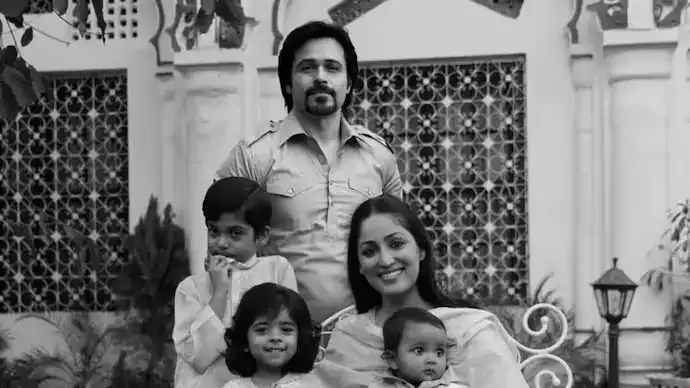Shopping cart
Your cart empty!
Terms of use dolor sit amet consectetur, adipisicing elit. Recusandae provident ullam aperiam quo ad non corrupti sit vel quam repellat ipsa quod sed, repellendus adipisci, ducimus ea modi odio assumenda.
Lorem ipsum dolor sit amet consectetur adipisicing elit. Sequi, cum esse possimus officiis amet ea voluptatibus libero! Dolorum assumenda esse, deserunt ipsum ad iusto! Praesentium error nobis tenetur at, quis nostrum facere excepturi architecto totam.
Lorem ipsum dolor sit amet consectetur adipisicing elit. Inventore, soluta alias eaque modi ipsum sint iusto fugiat vero velit rerum.
Sequi, cum esse possimus officiis amet ea voluptatibus libero! Dolorum assumenda esse, deserunt ipsum ad iusto! Praesentium error nobis tenetur at, quis nostrum facere excepturi architecto totam.
Lorem ipsum dolor sit amet consectetur adipisicing elit. Inventore, soluta alias eaque modi ipsum sint iusto fugiat vero velit rerum.
Dolor sit amet consectetur adipisicing elit. Sequi, cum esse possimus officiis amet ea voluptatibus libero! Dolorum assumenda esse, deserunt ipsum ad iusto! Praesentium error nobis tenetur at, quis nostrum facere excepturi architecto totam.
Lorem ipsum dolor sit amet consectetur adipisicing elit. Inventore, soluta alias eaque modi ipsum sint iusto fugiat vero velit rerum.
Sit amet consectetur adipisicing elit. Sequi, cum esse possimus officiis amet ea voluptatibus libero! Dolorum assumenda esse, deserunt ipsum ad iusto! Praesentium error nobis tenetur at, quis nostrum facere excepturi architecto totam.
Lorem ipsum dolor sit amet consectetur adipisicing elit. Inventore, soluta alias eaque modi ipsum sint iusto fugiat vero velit rerum.
Do you agree to our terms? Sign up

Rating: ★★★★☆ (4/5)
Release Date: November 7, 2025
Directed by: Suparn Verma
Starring: Yami Gautam, Emraan Hashmi, Sheeba Chaddha, Danish Hussain, Vartika Singh
There are films that demand your attention and there are films that quietly earn it — Haq belongs to the latter. Directed by Suparn Verma, this emotionally charged courtroom drama, inspired by the historic Shah Bano case, explores the intersections of faith, gender, and law without resorting to noise or sensationalism.
The story follows Shazia Bano (Yami Gautam), a woman navigating her right to dignity and justice within a society that often mistakes silence for submission. The narrative opens with her enduring humiliation and gradually rewinds to her early life in a small Uttar Pradesh town, capturing her transformation from an obedient wife to a resilient woman determined to reclaim her haq — her right.
Verma’s direction shines in its maturity. Instead of turning the film into a binary clash between religion and secularism, Haq thoughtfully examines how faith and law coexist when not manipulated by ego or patriarchy. The screenplay by Reshu Nath balances empathy with intellect, allowing viewers to understand both sides of the debate.
Shazia’s husband, Abbas Khan (Emraan Hashmi), hides behind faith to justify his cruelty — invoking religion to excuse emotional abuse, remarriage, and neglect. Yet, the film resists vilifying religion itself. It portrays how individuals twist scripture to serve power, distorting the essence of compassion that faith truly embodies.
Lines like “Kabhi kabhi mohabbat kaafi nahi hoti, izzat bhi zaruri hoti hai” echo through the theatre, striking at the heart of the film’s message: love without respect is hollow.
Yami Gautam delivers one of her most layered performances yet. Her portrayal of Shazia carries quiet fury, heartbreak, and grace — all in measured doses. Every glance and pause conveys the emotional restraint of a woman breaking centuries of conditioning.
Emraan Hashmi, too, surprises with a hauntingly real performance. His Abbas is not a caricatured villain but a painfully believable man — entitled, insecure, and self-righteous. The chemistry between the two leads peaks in their final courtroom confrontation, a sequence charged with raw vulnerability and intellectual intensity.
Supporting performances by Sheeba Chaddha and Danish Hussain add texture, while Vartika Singh makes an impressive debut.
Verma layers the film with small but striking details — a pressure cooker that keeps bursting, symbolising both domestic pressure and denial; a rose, once gifted as a symbol of possession, later left behind in court as a gesture of release. Such visual metaphors keep the storytelling deeply human.
The film also references Section 125 of the Criminal Procedure Code (CrPC) and its link to alimony rights, showing how the Shah Bano judgment reshaped public discourse on women’s rights. While the dissolution of that judgment by the then government appears only as a brief mention, it subtly reminds viewers how politics often tramples over justice.
The film’s heavy use of Urdu lends authenticity and richness but might challenge some viewers unfamiliar with the dialect. Yet, this very choice grounds Haq in realism, making its dialogue poetic and purposeful rather than purely expository.
The music, understated yet emotive, complements the storytelling. It supports the film’s tone — steady, soulful, and never manipulative.
Haq succeeds because it doesn’t shout. It listens — to the silence of women who have long been unheard. Verma’s direction and the lead performances turn what could have been a political statement into a human story about faith, dignity, and equality.
In the end, Haq is not about courtroom victory but about moral clarity — about standing tall even when the system bends.
It’s a film that doesn’t ask for applause; it earns respect — quietly, powerfully, and permanently.
84
Published: Nov 05, 2025